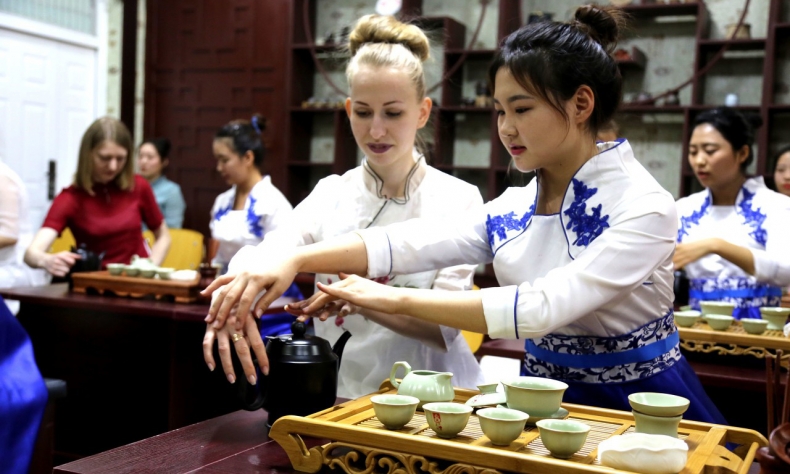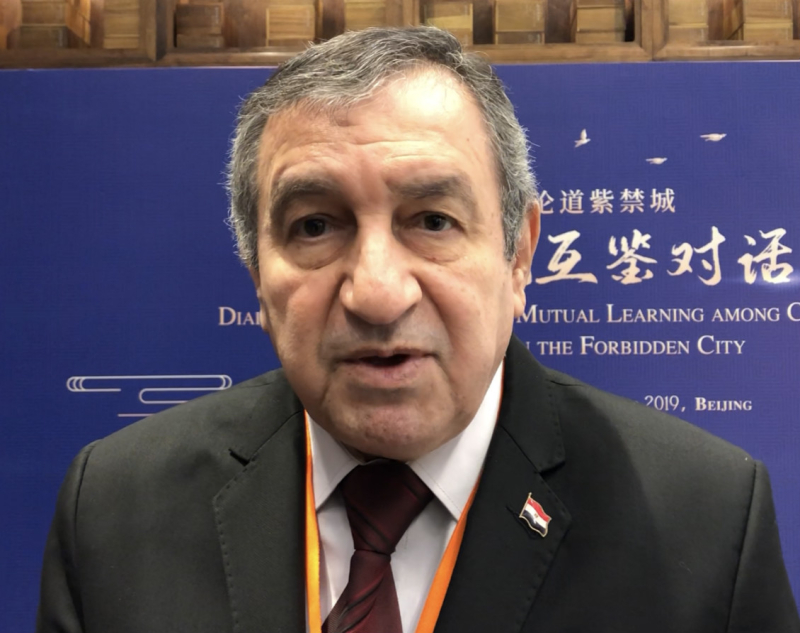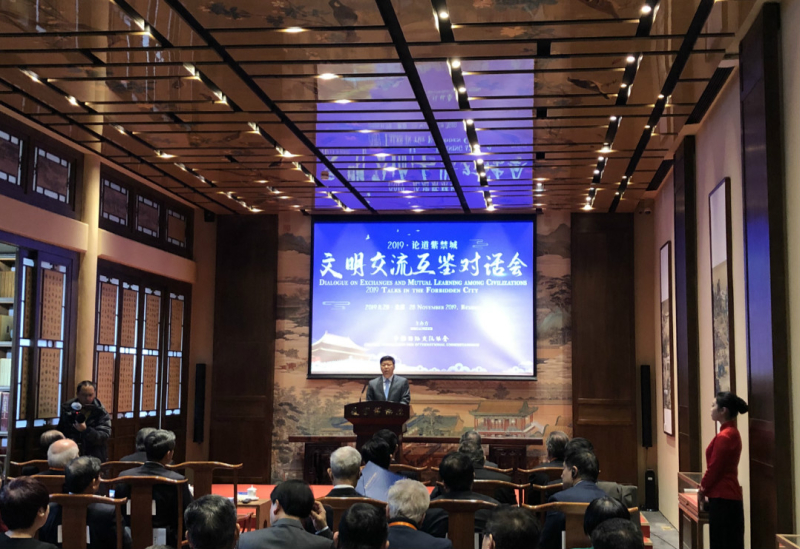
Cultural Exchanges Promote Mutual Understanding– An Interview with Former Prime Minister of Egypt Essam Sharaf
Chinese culture is very forgiving. The fact that 56 ethnic groups are living together is by itself an example to the world of harmonious diversity.
“Chinese culture is very forgiving. The fact that 56 ethnic groups are living together is by itself an example to the world of harmonious diversity,” former Prime Minister of Egypt Essam Sharaf told China Today on November 28 at the Palace Museum in Beijing, where he was attending the Dialogue on Exchanges and Mutual Learning among Civilizations organized by the Chinese Association for International Understanding (CAFIU).
A Ph.D. holder, and knowing China and the Chinese culture well, Sharaf naturally attracted the attention of many reporters on the sideline of the Dialogue, where he also took questions from China Today.

Increase mutual understanding between old civilizations
“Egyptian people like China, and I’m sure the Chinese people also like Egypt. This is a natural thing,” Sharaf first impressed reporters with such words, fully showing his attachment to the ancient country of China.
Sharaf indicated that lots of cultural cooperation events are going on periodically between China and Egypt, and personally he has a very good relationship with the Chinese cultural center in Egypt. Recently he attended an event about Confucianism in Egypt. “It was very fruitful because we saw the similarities between the Confucianism and Islam,” he said.
He believes the natural bond between the two civilizations is drawing their peoples closer, which has led to efforts to promote cultural exchanges and enhance mutual understanding.
When answering China Today’s question about what the distinguishing features of Chinese culture are in his opinion, Sharaf said that Chinese culture is not only old but also unique as it features a lot of moral values. “Maybe it was donated by Confucianism, but it is a mixture of Confucianism, Buddhism, and other schools of thought. As a result, it actually brings together all these values,” Sharaf said. Regarding ancient Chinese culture, he was most impressed with inclusiveness, a characteristic that runs deep in Chinese culture.
“I can see that even young people of the current generation still respect all the moral values, like visiting their family, respect for elderly people, and respecting their teachers. So all these aspects actually demonstrate that traditional Chinese culture or civilization is still alive,” he observed.
He further applauded the Chinese culture and civilization as being “a living culture and living civilization.” “You can feel it. Not like some countries, maybe they have civilization, but it’s not reflected in their day-to-day life,” he told China Today.
CPC has played its role
Sharaf believes there are lots of reasons that can explain why Chinese civilization is still alive, but among them all he thinks the CPC has played a key role in recent years. “The CPC has carried the responsibility, accepting as its own the main moral values of traditional Chinese culture, for example some concepts Confucianism. So when you talk about reform and opening-up, all these things, it is actually talking about its basic values. Traditional Chinese values have also been reflected in the country’s foreign policy and internal policies,” the former Egyptian Prime Minister said.
Sharaf thinks if a country’s leadership does not cherish or promote its country’s traditional moral values, its culture will vanish. “This is, I believe, one of the best things that CPC has done in recent years, to keep the culture,” he said. Traditional Chinese values are exhibited very clearly in people’s behavior and attitudes, he indicated.
In Egypt, Sharaf has also advocated the enlightenment project. He believes people should rediscover the values of traditional cultures, and be able to harmonize their cultures and civilizations with each other. At the same time, he indicated this would not be an easy thing to do as people’s thoughts today are quite different from people in the past. “I can see the enlightenment project has been persistently done by the CPC. I think we can do the same thing in my country,” Sharaf said.

Responsibilities of old civilizations
“China and Egypt have the responsibility to dig into their civilizations to help the world. Because, as you know, the world now is suffering from serious risks, which may, if we continue this way, destroy the world. So we need those old civilizations, the Chinese, Egyptian, Indian, Greek, and so forth, to work together. Look at the moral values, which are quickly being destroyed by that domination [of unfavorable trends],” Sharaf told China Today, while answering the question about the importance of dialogue between civilizations.
He thinks that some of the problems that exist in the world today are caused by discrimination, which is embedded in the nature of some beliefs. “So what we need is such a civilization which can actually reduce discrimination, promote the value of cooperation, the value of understanding, and the value of harmonization in the world,” Sharaf told China Today. He thus emphasized the importance of exchanges between civilizations and mutual learning.
He believes China and Egypt are embracing a great momentum in cultural exchanges and expects more. “A lot of people in both China and Egypt believe in the inter-civilization talks and mutual learning between both countries. And there is lots of effort being made to promote exchanges. Maybe it’s not enough, and we have to work on that because it’s our responsibility, because if we don’t take action we’ll suffer from many crises as a result.”
Art has no borders
During our interview, Sharaf also revealed that one of the largest heritage museums in the world is about to be opened in Egypt near the pyramids. In recent years, Egypt has witnessed a jump in the number of tourists, including many Chinese, whose main purpose is to see the old heritage sites of Egypt. “We have to maintain our culture. And we have been working really hard to do that.”
Sharaf believes art is a perfect means to connect peoples of different cultures. “Each piece of art is actually an expression of moral values and emotions, including happiness, sadness, and they encourage other things. So art is a good medium for carrying meaning.” He thinks those good traditional moral values should be drawn on and presented to people in the form of drama, poetry, literature, paintings, and even calligraphy.
Last year, Sharaf attended a calligraphy and painting exhibition in China. “Even though I do not understand the writing, I can feel the beauty of calligraphy, the beauty of the mountains, the flowers, and all these things. It’s very deep in the Chinese civilization. Therefore, if we can work together in exchanging of arts, that will help people get the values,” he said.
Source: China Today
 Facebook
Facebook
 Twitter
Twitter
 Linkedin
Linkedin
 Google +
Google +










